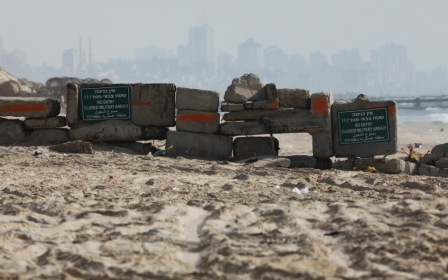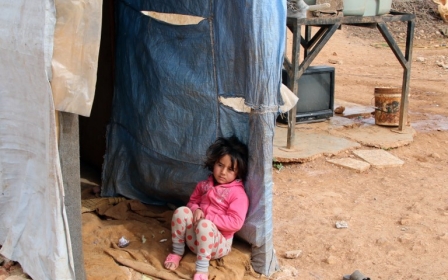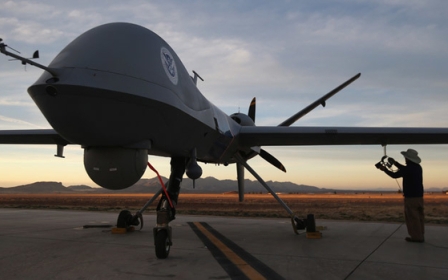Russian jets 'intercept' Israeli planes over Lebanon: Reports

Russian fighter jets intercepted Israeli warplanes over Lebanese airspace early on Monday morning, according to local outlets.
Reports claimed that two Israeli F-16 jets were challenged by Russian Sukhoi Su-34 jets over Lebanese airspace.
Israeli and Russian officials did not confirm the incident took place.
Videos circulated online showed Russian planes flying over Lebanon. The clips, however, did not show any Israeli jets.
The Russian jets may have been participating in a routine training exercise before intercepting the Israeli warplanes, according to Israeli newspaper Hadashot.
This latest episode marks the first time in months that Russian planes had entered Lebanese airspace from Syria, according to Al-Masdar news.
Israeli jets often fly over Lebanon conducting reconnaissance missions. Lebanon, which considers Israel an enemy state, often complains about its southern neighbour violating its airspace.
Israel in recent weeks has conducted air strikes on military bases in Syria thought to contain Iranian troops or fighters belonging to the Lebanese group Hezbollah. Iran and Hezbollah are fighting in Syria on the side of President Bashar al-Assad. Occasionally missiles used in such strikes are fired by Israeli jets from Lebanese airspace.
Last week, Israeli air force commander Amikam Norkin showed visiting air force officers a photograph of the F-35 stealth fighter flying over the Lebanese capital of Beirut.
Foreign policy circles are viewing the image as a tacit warning against the Iranian-backed Hezbollah.
Israeli Prime Minister Benjamin Netanyahu earlier this month said Moscow would not limit Israel's operations in the region.
Both Russia and Israel set up a mechanism in September 2015 to avoid any misunderstanding in light of Moscow's heavy military presence inside Syria.
However, officials from both Moscow and Tel Aviv do not inform each other on their operational plans.
“Cooperating is not the right term. We do not coordinate [with Russia]. It’s about deconfliction and security measures, so they don’t harm us and we don’t harm them,” a senior officer told the Times of Israel.
Middle East Eye propose une couverture et une analyse indépendantes et incomparables du Moyen-Orient, de l’Afrique du Nord et d’autres régions du monde. Pour en savoir plus sur la reprise de ce contenu et les frais qui s’appliquent, veuillez remplir ce formulaire [en anglais]. Pour en savoir plus sur MEE, cliquez ici [en anglais].




